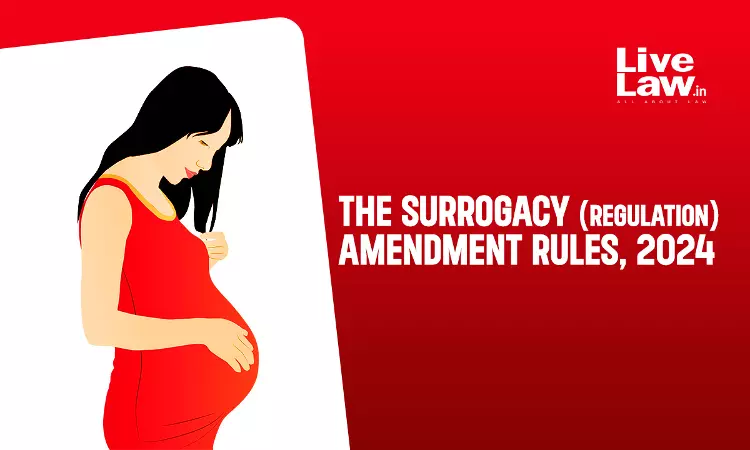Centre Amends Surrogacy Rules To Allow Couples With Medical Conditions To Use Donor Gametes
Debby Jain
22 Feb 2024 3:47 PM IST

Next Story
22 Feb 2024 3:47 PM IST
In a crucial development to the surrogacy landscape in India, the Central government has modified the Surrogacy (Regulation) Rules, 2022 and notified that for couples (husband or wife) certified as suffering from medical conditions, both gametes need not come from the intending couple.To recap, Form 2 (Consent of the Surrogate Mother and Agreement for Surrogacy) of the Surrogacy Rules read...
